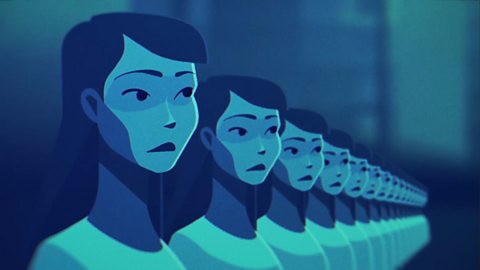Chloe:
From the little bits that I can remember when I was younger, it was good. Yeah, I had a pretty tight family, I was pretty naïve to everything. We all sorta lived on the same street, got on with all our neighbours. I was seeing my dad every weekend with my brother. Mum took in, well, who was to be her new boyfriend. He didn't have a lot going for him, and it was mainly his kids that were the issue. So the older one would do anything to get me in trouble, she'd break things, she'd steal things. And the younger one, he was a horrible person. From what I can remember that's when it all started going downhill.
Chloe:
My mum got a drug habit, mainly brought on by her new boyfriend. She sort of started to go off the rails a bit. He was having a big influence on her. We'd be out at parties until three o'clock in the morning on a Sunday. I don't know if it was a New Years party or a birthday party, but we were just sort of told to go off and play, like, just go and play outside or whatever, and I came to find mum and I saw her, like, passed out over a cooker. And I just remember screaming, and everyone was telling me to get out. She wouldn't be waking up in the mornings to take us to school, we were having to get ourselves in, making our own lunch. [Then] my brother was being taken off by the rest of the family. He's got autism, and during mums sort of, call it her phase. That's when he started getting bigger, he started getting more angry, couldn't control the aggression. That sort of had a big impact, cause all my confidence from then just sorta disappeared. And without my dad there as well, that was really difficult cause I started seeing him a lot less. That's sort of when I started to go downhill, started to realise everything that had happened before.
Chloe:
So year seven and year nine, it became hell, I couldn't get myself out of bed. I couldn't go into school, I couldn't do anything. It was a feeling of emptiness and just complete worthlessness.
Chloe:
I started smoking a bit of weed recreationally, and then I started finding that it really helped my mood, I wasn't feeling the extremes that I normally felt. I could actually get through the day and get outside. It was literally like my air, I couldn't do anything without it. And then from that, I sorta, I started to know people, so I guess I sorta got myself into the wrong crowd. And it wasn't just weed, then came the ecstasy. I'd never felt happiness like it, it was the best feeling in the world. The only thing I could look forward was the next time I was getting off my face.
Chloe:
And then came the cocaine, and that's probably been the worst, just because of how difficult it has been to come out of it, to break the habits, to learn that little bit of self-control. I couldn't go out for a weekend, I couldn't go and stay at a friends house because I wouldn't be able to smoke, and that was priority. That was probably the worst thing about it, just the fact it sort of took over my life. T was a case of going into school stoned, and then by the end of the day I'm exhausted, I'm grumpy, I'm agitated. I guess it all just got too much again. I was feeling suicidal.
Chloe:
I told my mum straightaway. I went to A&E, and that's when I was basically told, if you want the help and you wanna get better, you have to stop, otherwise you're not gonna get it.
Chloe:
I started to sort of become in touch with myself more, started to understand the way I was feeling, and I started talking about how I was feeling. It's very early days, but I feel a lot more free now, I actually have the ability to talk about the things. I haven't touched cocaine in quite a while. I haven't touched ecstasy. You know, it wasn't as difficult, the hardest part has been stopping smoking. It was just about breaking those barriers, so you'd have the first day and, you know, I wouldn't be able to sleep, I wouldn't be able to eat, but then the next day I sort of felt alive.
Chloe:
My mum's made a big effort, and I've sort of welcomed her back in with open arms, because she is the only family I have, and I know her childhood wasn't easy. Now she knows the mistakes she, she's made, I know she feels guilty with it, and she's living through this as well.
Video summary
Narrated in first person, this film explores what it is like to battle with addiction and the control it can take over your life.
Chloe’s testimony is open and honest, and creates an intimate portrait into how it can feel to rely on drugs, from getting through the school day to socialising with friends.
She traces the root of her addiction to her home life, citing abuse from her siblings to the actions of her mother, who openly used drugs in her presence.
Chloe felt isolation and emptiness, and began using as a way to control her moods - almost as a self-medication.
She talks about feeling total worthlessness, and how the drugs balanced her.
After falling in with a bad crowd, her drug use began snowballing, moving from the daily use of weed, to recreationally using ecstasy and cocaine until it became uncontrollable.
Her powerful description gives students an insight into what addiction can be like - something all-consuming and bleak.
Chloe didn’t seek help until she began to feel suicidal, at which point she felt able to talk to her mum about what she had been going through.
After going to A+E, she was told she would need to be sober to get the help that she needed.
From there, she started to communicate more, and increasingly understand her own feelings as she received treatment.
Since then, she was able to stop the cycle and massively reduce her use of drugs.
This animation will be particularly useful for teachers in discussion about understanding others, understanding addiction, as well as how slow and painful the recovery road can be, as Chloe is still within hers.
It provides some information about where to seek help when you are feeling particularly bad, but does not go into detail.
It is an insight into how damaging mental health problems can be and the different ways they can manifest.
Due to the sensitive nature of the subject matter, we strongly advise teacher viewing before watching with your pupils.
Teacher Notes
Key Stage 3 and Key Stage 4
Chloe’s story touches on the emotional causes underpinning her own drug use.
Can pupils timeline or storyboard the causes and issues that laid the path for Chloe to start using drugs?
What happened on her road before she started using and how did each issue/situation make her feel?
What could she have done at each point on that road to get help or help herself to cope, or were the things she was experiencing too big to cope with or out of her control?
Pupils could then continue the timeline or storyboard showing her journey into A+E and the start of her recovery.
It is important to understand how each part of her experience made Chloe feel and for pupils to see that there were points along the road, when if she had received help, the path may have been able to turn and avoid her using drugs.
Getting help depends on being able to speak up and not be afraid to ask for help. There is no shame in asking for help.
All human beings need help sometimes, especially with managing emotions in difficult situations which seem out of their own control.
Maybe students could also look at the physical side effects of drug use.
Students could look further into organisations which would be suitable to seek help, including CAMHS (Child and Adolescent Mental Health Services).
Key Stage 4
Chloe’s story looks at the effects of her changing family situation on her emotional well-being which led to her addiction.
Students could investigate which drugs affect mood in which ways and better understand how drugs help some people to self-medicate and either dull or heighten their emotions.
This needs to be coupled with studying the damaging physical, social and emotional effects of drug-use.
Pupils could sensitively ‘hot-seat’ Chloe (i.e. the teacher or a pupil acting as Chloe) at each pivot point, asking her questions about her feelings, her situation and suggesting what she could do to get help before turning to and after being addicted to drugs.
This short film is suitable for teaching PSHE at KS3 and GCSE in England, Wales and Northern Ireland and Modern Studies at National 4 and 5 in Scotland.
Dealing with an eating disorder - Jack's Story. video
Jack’s story explores what it can be like to battle with an eating disorder in school.
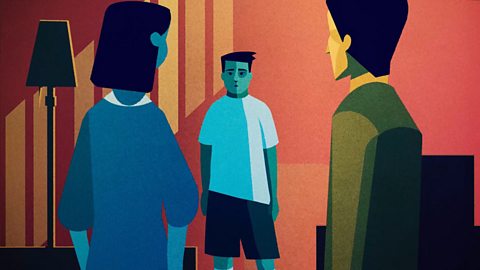
The effect of being bullied - Ryan's Story. video
Ryan’s story explores how being bullied at school and feeling alone in his family triggered serious problems with his mental health.
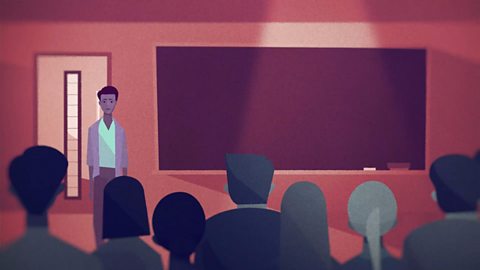
Anxiety - Aneeka and Sam's Story. video
Aneeka and Sam’s story explores what it is like when you are battling anxiety and the different reasons it can develop.
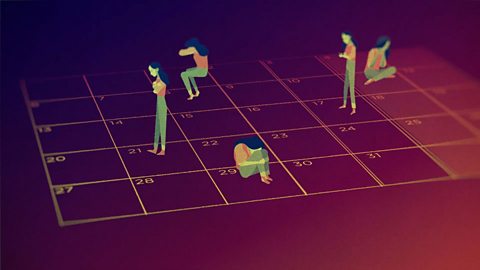
Self-harm - India's Story. video
India’s story explores what it can be like to battle with severe anxiety and self-harm.
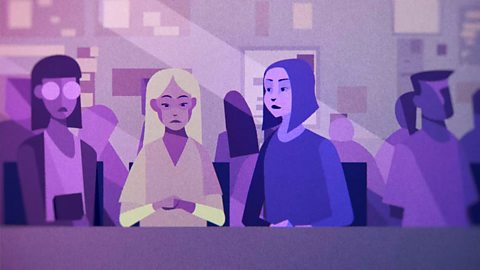
Depression - Eleanor’s story. video
Eleanor’s story explores what it can be like to battle with depression and suicidal thoughts and the effect it can have on your life.
